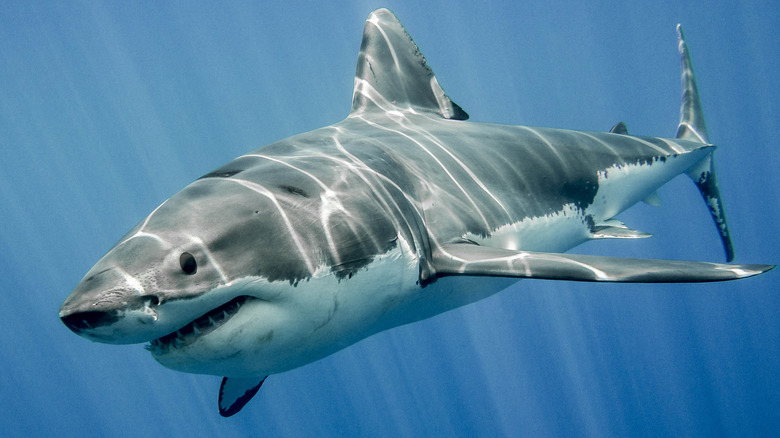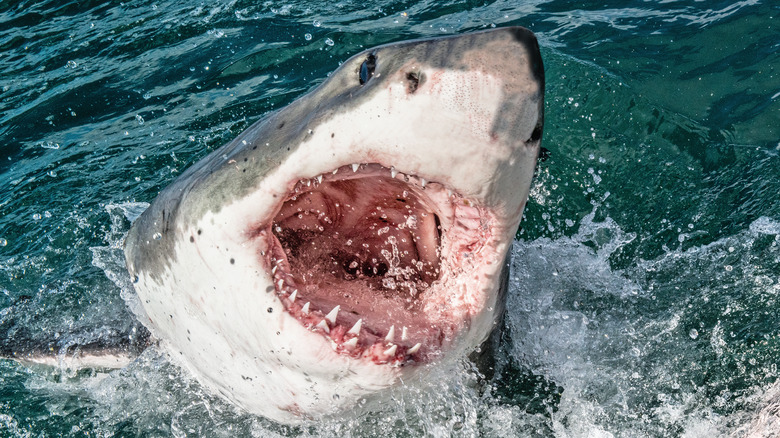The Terrifying Shark Myth You Should Stop Believing
When it comes to sharks, it can be difficult to separate the facts from the myths. Take for instance the notion that sharks have brains the size of a walnut. According to Oceana, nothing could be further from the truth. In fact, sharks have the largest brains of all fish, with the all-important brain-to-body ratio of sharks being very similar to that of mammals.
Or how about the idea that sharks have no problem munching on a delicious-looking swimmer? As it turns out, human flesh isn't high on the menu for those grey torpedoes with sharp teeth. According to World Wild Life, sharks mostly eat fish, squid, or seals. The problem for humans surfaces when a curious shark comes to investigate a bit of commotion happening in the ocean. Since sharks aren't really picky eaters (via Sharks World), they'll check out any kind of interesting activity going on by taking a little bite out of something. Which, in some cases, turns out to be a surfboard with a human sitting on it (via BBC). Once the shark finds that the object is not to their taste, it generally swims away, leaving the human with a missing limb.
blood in the water
Perhaps the most prevalent myth about sharks that isn't the least bit true is the notion that they can smell a drop of blood in the ocean from a mile away. The biggest problem with this notion is that sharks don't smell as humans do. According to Sport Diver, sharks aren't equipped with noses or nostrils to smell with. Instead, they're equipped with openings called nares, which are located just under the snout. Unlike in humans, where we can breathe and smell out of our noses, shark physiology separates the processes, with gills doing the breathing and nares doing the "smelling" (via Ocean Conservancy).
To further discount the notion, odors travel differently in water — smells diffuse slower in water than in air because the former has more molecules. So it would be nearly impossible for a shark to detect any amount of blood in the ocean from a mile off, let alone a single drop. However, with two-thirds of its brain hardwired for smelling, sharks still use this sense to navigate the ocean, hunt, and find their way home (via Moment of Science).
To put the outdated notion of the shark's ability to smell blood in the water in more realistic terms, sharks can actually detect one part of blood in one million parts of water, per Shark Trust. That's the equivalent of a teaspoon of blood in an average-sized swimming pool containing 13,500 gallons of water. Not quite the same as smelling a single drop of blood a mile away.

